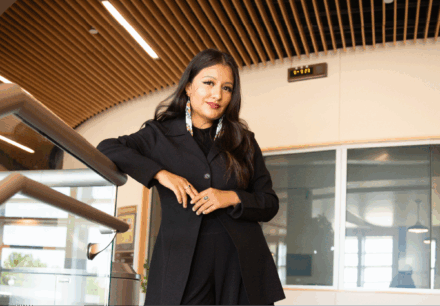From Slushies to Student Success: How Ali Holcomb’s Corban Degree is Transforming Her Approach to Education
When Ali Holcomb stepped into her unique role teaching kindergarten science at a Christian school, she knew she was stepping into something unexpected—but also something God-ordained.
“Science was never my favorite subject,” Holcomb admits with a laugh. “But when the school needed someone to fill a gap, I offered to help. We realized kindergarten teachers struggled to fit science in effectively, and suddenly I was handed this opportunity to create a hands-on, project-based experience for young learners.”
It’s the kind of opportunity Holcomb has learned to recognize as God’s providence. That same sense of divine timing led her to Corban University’s Master of Science in Education program—after a journey that began years earlier as a high school student in Montana, dreaming of becoming a teacher but unsure how to get there.
As a first-generation college student, Holcomb didn’t grow up knowing what steps were needed for a teaching career. That changed when a career advisor named Cindy Allen helped her understand the college process. Allen’s daughter, a student ambassador at Corban, made the university feel approachable and inspiring.
Holcomb ended up choosing Montana State for her undergraduate studies, electing to stay closer to home, but Corban never left her mind. Years later, after marrying her husband, Joshua, and relocating to New Mexico, Holcomb discovered that both of their employers would cover the cost of graduate education. That’s when Corban reentered the picture. As they talked, Holcomb and her husband were both surprised to realize they had separately considered Corban as undergrads before ending up at Montana State.
“It wasn’t a coincidence that my advisor’s daughter went to Corban, or that both my husband and I had considered it for undergrad, too,” she says. “God had planted a seed years before. When we were both ready for grad school, we realized Corban was exactly where we needed to be.” Her husband completed his MBA at Corban two years before Ali finished her M.S.Ed. this spring. She describes the program as transformational—not just professionally, but spiritually.
“Even though I’ve always known I was called to teach, I had never explored that calling through a biblical and academic lens before,” she says. “The program helped me integrate my faith into every part of my teaching, not just in theory, but in deeply practical ways.”
One moment that stood out came in her first course, taught by Dr. Susan Boe, when students were encouraged to view every child as a potential disciple of Christ.
“That shifted everything for me,” Holcomb says. “I was working in a public school at the time, and I realized I hadn’t been seeing my students through that lens. That one comment showed me I was exactly where I needed to be.”
Her thesis research, which explored the relationship between student nutrition and educational outcomes, was sparked by real-life classroom experience and a desire to advocate for holistic care. “There was a student who came in every day with a blue slushie for breakfast,” she recalls. “It made me wonder—how much of what we label as behavior or learning issues is actually rooted in physical wellbeing?”
Holcomb is proud that her thesis, titled Emerging Trends in Student Health: The Impact of Nutrition on Academic Outcomes, is now part of Corban’s library. But more than that, she’s proud of how the program gave her both practical expertise and spiritual confidence. “I’m not walking away as an expert in everything,” she says, “but Dr. Dixon told us we can walk away with expertise—and that’s a big difference. I feel equipped and confident.”
When asked how she hopes to make a difference in the world for Jesus Christ, Holcomb returns to that message from her first Corban class: seeing every student through the eyes of Christ. In doing so, she hopes to be a light in whatever teaching environment she finds herself in, encouraging other first-generation students, like herself, who don’t yet know what’s possible. “I want people to see something different in me—that ‘something different’ is Jesus,” she says. “And I want to be the person that helps kids from small towns, or from families like mine, see that college and purpose-filled work is possible for them too.”
For others considering graduate education, especially while working full-time, Holcomb is quick to endorse Corban. “The flexibility and personal support were incredible,” she says. “There were times I had to pause the program—when I had my daughter, when we moved—and Corban worked with me every step of the way. Dr. Imig even called me personally to help me finish on time. That just doesn’t happen everywhere.”







